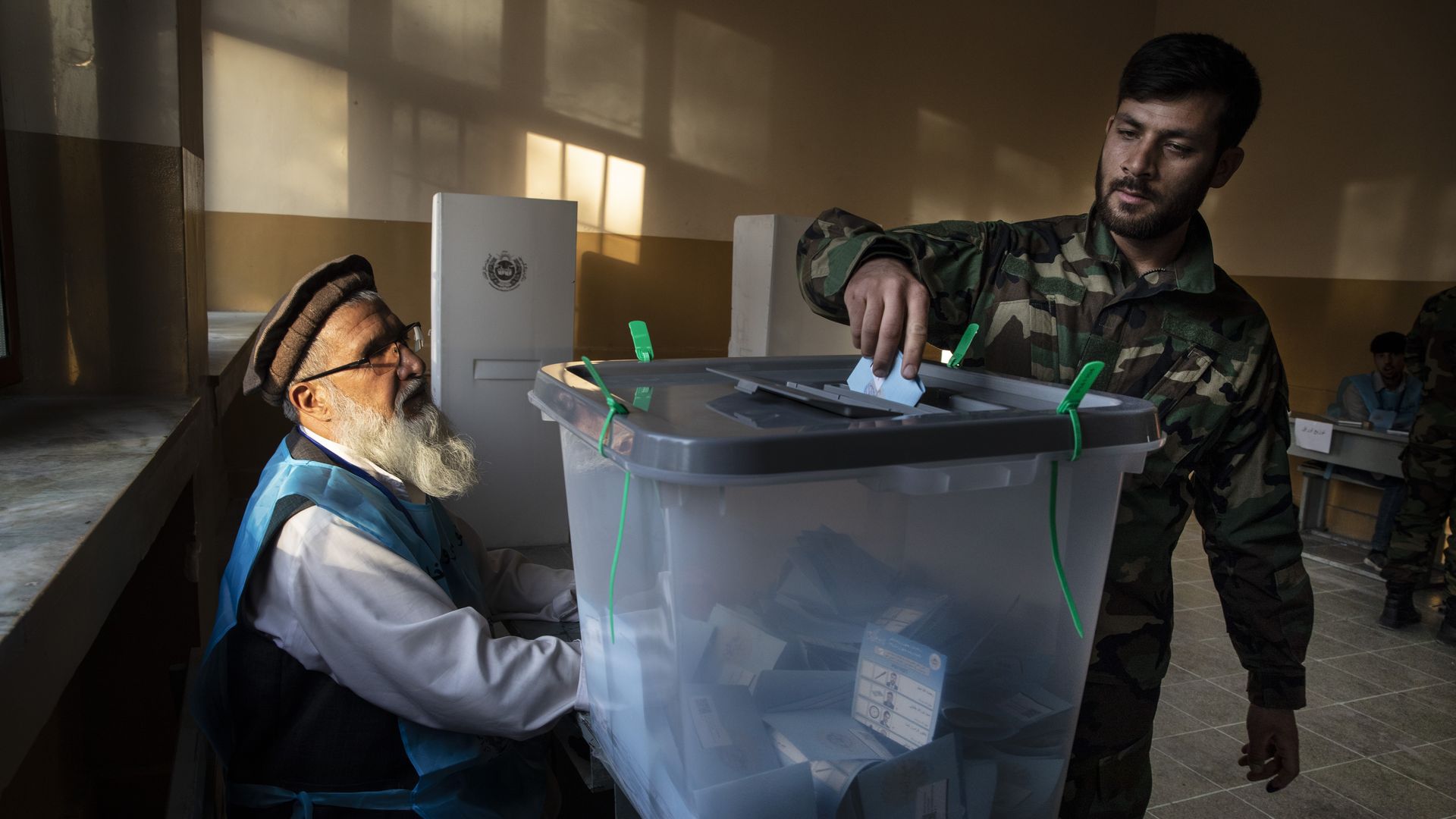Sep 28, 2019
Afghanistan elections: Turnout strikingly low despite few Taliban attacks
Add Axios as your preferred source to
see more of our stories on Google.

An Afghan soldier casts his ballot in Kabul, Afghanistan on Sept. 28, 2019. Photo: Paula Bronstein/Getty Images
